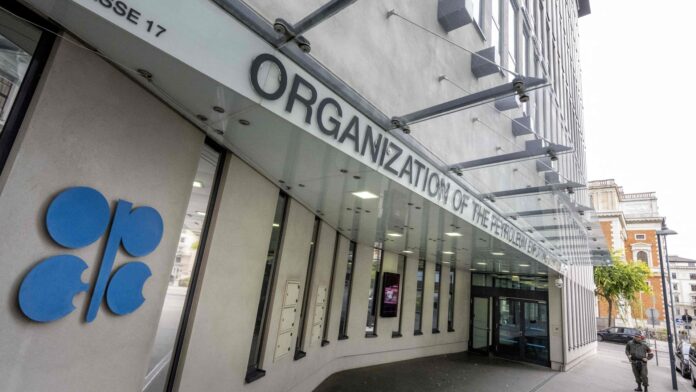An Austrian soldier guards the entrance to the OPEC headquarters on October 4, 2022 on the eve of the 45th Meeting of the Joint Ministerial Monitoring Committee and the 33rd OPEC and non-OPEC Ministerial Meeting held on October 05, in Vienna, Austria.
Joe Klamar | AFP | Getty Images
WASHINGTON — A desperate, last-ditch effort by the Biden White House to convince OPEC+ members to vote against a proposed production cut at Wednesday’s meeting in Vienna failed, as the oil producing cartel announced a larger-than-expected production cut of 2 million barrels per day.
Shortly after the announcement, President Joe Biden told reporters at the White House he thought the cut was “unnecessary,” although he said he had yet to see all the details.
related investing news
Publicly, the White House had issued general statements about keeping up global energy supply.
But behind the scenes, members of the Biden administration had been “pulling out all the stops,” reaching out to partners in the Persian Gulf and warning of drastic consequences to the global economy if a production cut was announced, according to multiple people familiar with the situation.
The White House even tried, unsuccessfully, to enlist companies to speak out against a production cut, according to people who asked to remain anonymous to describe private conversations.
This was OPEC’s first major production cut since the early days of the Coronavirus pandemic in 2020.
With U.S. midterm elections just a month away, any increase to gas prices resulting from higher oil prices would be a political gift to Republicans, who have blamed Biden for the record high gas prices brought on primarily by Russia’s invasion of Ukraine.
As a member of the expanded OPEC+ group, Russia is poised to benefit significantly from Wednesday’s decision.
The Kremlin is heavily dependent on oil export revenues to fund its war in Ukraine, and its own petroleum production has fallen since the start of the invasion.
The newly announced production cut will buoy Russia’s oil revenues heading into winter, when demand for Russian energy from Europe and central Asia typically rises.
This is especially important for Moscow given that the European Union is preparing to impose a Russian oil embargo, and G-7 nations are finalizing plans to impose a limit on the price that G-7 nation oil transporters are allowed to pay for Russian oil they plan to ship to Asia and Africa.
This is a developing story, please check back for updates.



